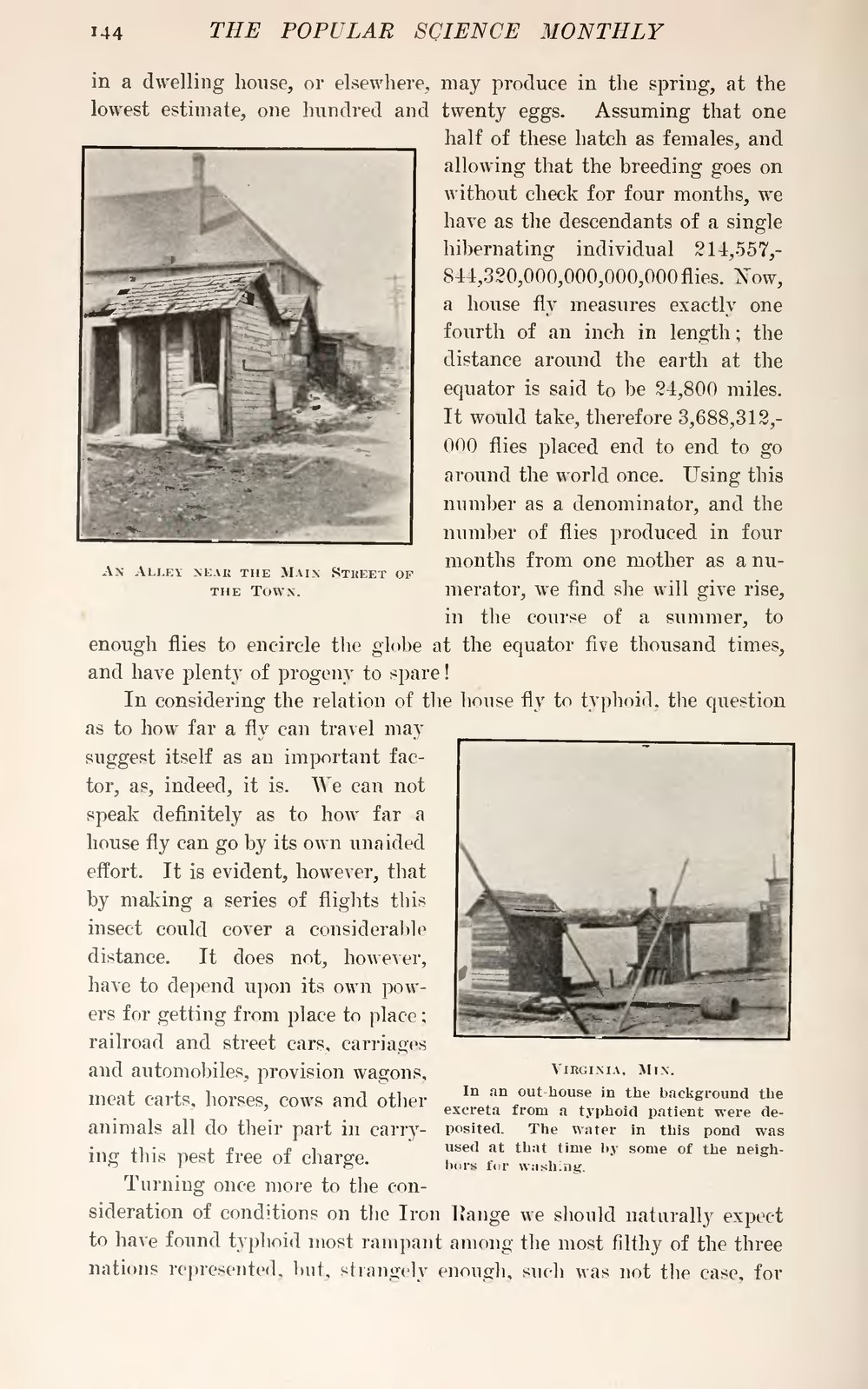in a dwelling house, or elsewhere, may produce in the spring, at the lowest estimate, one hundred and twenty eggs. Assuming that one  An Alley near the Main Street of the Town. half of these hatch as females, and allowing that the breeding goes on without check for four months, we have as the descendants of a single hibernating individual 214,557,844,320,000,000,000,000 flies. Now, a house fly measures exactly one fourth of an inch in length; the distance around the earth at the equator is said to be 24,800 miles. It would take, therefore 3,688,312,000 flies placed end to end to go around the world once. Using this number as a denominator, and the number of flies produced in four months from one mother as a numerator, we find she will give rise, in the course of a summer, to enough flies to encircle the globe at the equator five thousand times, and have plenty of progeny to spare!
An Alley near the Main Street of the Town. half of these hatch as females, and allowing that the breeding goes on without check for four months, we have as the descendants of a single hibernating individual 214,557,844,320,000,000,000,000 flies. Now, a house fly measures exactly one fourth of an inch in length; the distance around the earth at the equator is said to be 24,800 miles. It would take, therefore 3,688,312,000 flies placed end to end to go around the world once. Using this number as a denominator, and the number of flies produced in four months from one mother as a numerator, we find she will give rise, in the course of a summer, to enough flies to encircle the globe at the equator five thousand times, and have plenty of progeny to spare!
In considering the relation of the house fly to typhoid, the question
 Virginia, Min. In an out-house in the background the excreta from a typhoid patient were deposited. The water in this pond was used at that time by some of the neighbors for washing.
as to how far a fly can travel may suggest itself as an important factor, as, indeed, it is. We can not speak definitely as to how far a house fly can go by its own unaided effort. It is evident, however, that by making a series of flights this insect could cover a considerable distance. It does not, however, have to depend upon its own powers for getting from place to place; railroad and street cars, carriages and automobiles, provision wagons, meat carts, horses, cows and other animals all do their part in carrying this pest free of charge.
Virginia, Min. In an out-house in the background the excreta from a typhoid patient were deposited. The water in this pond was used at that time by some of the neighbors for washing.
as to how far a fly can travel may suggest itself as an important factor, as, indeed, it is. We can not speak definitely as to how far a house fly can go by its own unaided effort. It is evident, however, that by making a series of flights this insect could cover a considerable distance. It does not, however, have to depend upon its own powers for getting from place to place; railroad and street cars, carriages and automobiles, provision wagons, meat carts, horses, cows and other animals all do their part in carrying this pest free of charge.
Turning once more to the consideration of conditions on the Iron Range we should naturally expect to have found typhoid most rampant among the most filthy of the three nations represented, but, strangely enough, such was not the case, for

